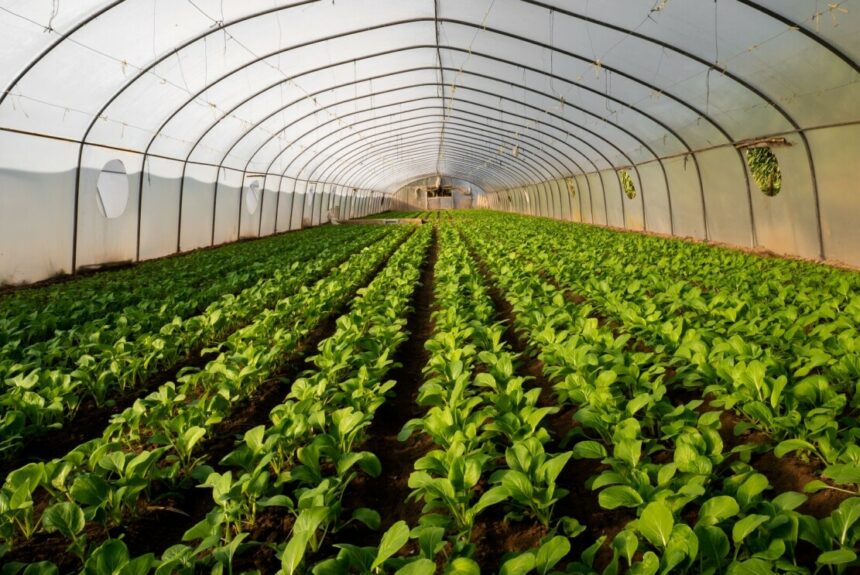Amazon is working with ag-tech startup Hippo Harvest to bring climate-friendly produce options to millions of Americans, the company said in a recent press release.
>>>READ: Eden Green is Bringing Affordable, Healthy Food to Consumers
The Half Moon Bay, California-headquartered startup uses plant science, machine learning, and robotics to develop sustainable greenhouse systems that are cost-competitive with fields and traditional agriculture. An advanced technique, called controlled environment agriculture (CEA), yields a wide array of pesticide-free and high-quality leafy greens. Hippo Harvest claims that its crops use 92% less water and 55% less fertilizer than conventional greens.
“Climate change is already impacting how we eat. As water continues to disappear from our agricultural communities, we need solutions that give farmers the ability to make the best use of our natural resources and ensure everyone has access to fresh produce,” Amazon’s Vice President of Worldwide Sustainability Kara Hurst said in the announcement. “Amazon’s collaboration with Hippo Harvest is another step forward in our work to support transformative green technologies while also providing our customers with a broader array of grocery options.”
So what makes Hippo Harvest a pioneer in the sustainable agriculture sector? For starters, Hippo Harvest uses a closed-loop, direct-to-root fertilizer system and machine learning to reduce food waste and land use. Small robots on-site deliver the precise nutrient and water levels to crops, in addition to collecting data on plants, transporting produce, and other important functions. Beneficial insects, peppermint oil, and other biological controls act as natural pesticides. No synthetic pesticides are used. The climate-controlled greenhouses can be deployed almost anywhere–including in high-density metropolitan areas.
Hippo Harvest products are also exclusively grown close to customers to reduce carbon emissions from long-distance food miles and increase shelf life. On the other hand, conventional field-grown vegetable crops are transported an average of 1,500 miles before they reach the consumer.
>>>READ: Why Funding Agriculture Research is a Win for the Climate
Hippo Harvest notes that its innovative approach reduces food waste by 61% and land use by 94%. For now, the company’s signature lettuce blends are limited to select Amazon Fresh online stores in San Francisco.
“The Hippo Harvest greenhouse will serve as a test case for how the local [Pescadero-area] agriculture community can address both its record water shortage and increasing rain storms,” Amazon said.
Last week’s announcement is part of Amazon’s broader commitment to attaining net-zero carbon emissions. In June 2020, Amazon announced The Climate Pledge Fund, a $2 billion investment program supporting promising green tech startups whose products and services will help facilitate the earth’s transition to a low-carbon economy. The partnership comes less than two years after Amazon’s initial investment in Hippo Harvest.
The collaboration is emblematic of the private sector’s push to advance innovative technologies and approaches to address climate change and other environmental issues. Companies and entrepreneurs are unlocking new ways to better society and lower our environmental footprint.
Nathalie Voit is a freelance content creator and a graduate of the University of Florida. She is an alumni of The Heritage Foundation’s Young Leaders Program.
The views and opinions expressed are those of the author’s and do not necessarily reflect the official policy or position of C3.
